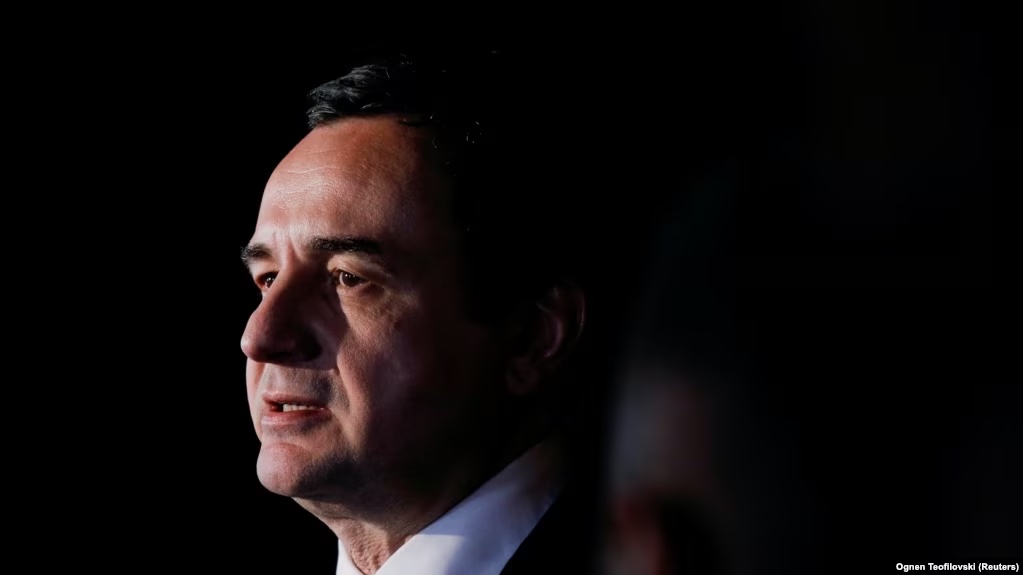Sunday, December 8th 2013

The government seems determined to push an anti-corruption reform package through parliament despite concerns expressed by the United States and the OSCE.
Albania’s centre-left government has expressed determination to swiftly pass through parliament an anti-corruption package, which would grant new authority to the court and the prosecutor’s office for Serious Crimes.
The bill transfers corruption-related investigations to the Prosecutor’s Office for Serious Crimes and the results of these probes will be judged by the Court of Serious Crimes in Tirana.
“The Court and Prosecutor’s Office for Serious Crimes is a success story and I believe they would make the fight against corruption a reality,” the Minister of Justice, Nasip Naco, told a parliamentary hearing on Tuesday.
Created in 2004, the Serious Crimes court is a specialized institution dealing with offences related to organized crime, criminal gangs, human and narcotics trafficking, terrorism, war crimes and insurrection.
Cases brought before the court are investigated by the Serious Crimes Prosecutor’s Office, a specialized department under the jurisdiction of the general prosecutor.
The court was created in response to the breakdown in law in order that Albania experienced after near-anarchy engulfed the country in 1997, when a series of pyramid-like investment schemes collapsed.
According to Transparency International, Albania is the most corrupt country in Balkans and one of the most corrupt in Europe.
The Berlin-based watchdog organization’s “Corruption Perception Index” saw Albania drop in its rankings from 113th place out of 176 countries in 2012 to 116th position in 2013, the worst performer in the region for a third year in a row.
“In Albania, corruption is registering a new physiognomy in a favorable political environment, with characteristic like new systems for money laundering, financing of political parties from illegal activities, the capture of the state through the control of procurement and privatization, human and narcotics trafficking and the impunity of high state officials before the justice system and the law,” Ines Hila, coordinator for Transparency International Albania, said.
Only last week Albania’s judicial system was rocked by scandal over the publication secretly filmed videos by the investigative TV show, Fiks Fare, on Top Channel TV.
The videos showed a middle man and court secretaries collecting thousands of euro on behalf of judges and prosecutors to free people jailed after a protest against a mining company.
In the case of one protestor whose case had reached the Supreme Court, a middle man sought 2,000 euro for the Chief Justice and 4,000 euro for the four other members of the judicial panel.
Reacting to the investigation, the General Prosecutor launched a probe and suspended the chief prosecutor of Puke, Pellumb Prenci, and a judicial officer, Hasan Alia.
Responding to the watchdog’s report, Prime Minister Edi Rama, who took office two months ago, blamed the previous centre-right government for the widespread corruption.
“Albania has received a slap in the face with the publication of the corruption perception index,” he said on Tuesday. “This is the legacy of the previous government,” he added.
Rama is under pressure from the EU to tackled corruption and organized crime as a condition for Albania obtaining candidate status and making progress in its accession process.
However, two key missions that have aided Albania’s reform process have questioned the validity and potential implementation of the new anti-corruption package.
In a letter sent to the law commission in parliament, the US Embassy to Tirana complained that its experts had not been consulted on the two bills constituting the package of reforms.
“We have not been consulted on these two bills, which touch laws that have been changed several times,” the letter said. “The amendments have been approved without public discussion and they have to be discussed with the prosecutor’s office and the High Council of Justice,” it added.
The OSCE has also expressed concern about the transfer of competencies on the fight against corruption.
“We agree that corruption should be tackled by specialized institutions, but neither the Court nor the Prosecutor’s Office for Serious Crimes are specialized in the fight against corruption,” the OSCE said, in a letter sent to the law commission in parliament.
“Both institutions do not have the manpower and the financial resources to probe the suspected cases of corruption in the country,” it added.
Justice Minister Naco brushed off the criticisms, saying that concentrating investigations and judgments of corruption cases under one roof would produce results.
“I thank all the [international] partners for their contribution but it’s the judges and prosecutors that will implement this law,” he told the parliamentary hearing.
“The concentration of corruption cases under one court will unify the way they are investigated and justice is delivered,” Naco concluded./balkaninsight/




